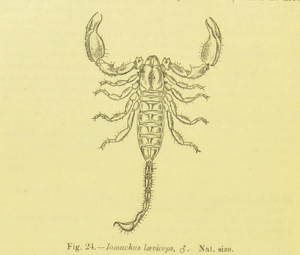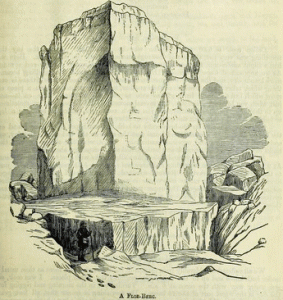We’ve now sent up to 1500 books to the Internet Archive’s Scanning Centre on Euston Road. Over 1400 of the books are up on Internet Archive in high quality, full colour reprographics. With nine other contributing libraries, the project aims to digitise 15 million pages. Further items will be sent over summer 2015.
Internet Archive works under a range of Creative Commons licences and the UK Medical Heritage Library uses Public Domain Public Domain mark 1.0 licence wherever possible (post-1900 books are digitised under a CC-BY-NC licence). They can be downloaded as facsimiles, searched through as full-text or formatted for e-pub readers and Kindle. LSHTM’s contribution to the collection contains books and pamphlets published all over the world. Books are in at least 10 languages and show a range of designs and typography. They are rich in visual content and images: many folded maps, colour illustrations and plates have been specially photographed and some of the attractive or unusual bindings of the books have been digitised. The collection can be downloaded as a set, or filtered by key words and search terms and all results downloaded in the format desired for data analysis. We’re now adding digital access to the e-book records through the library catalogue at LSHTM.
The MHL project as a whole has been viewed over 20 million times already on Internet Archive, and LSHTM’s page over 20,000 times.
Internet Archive’s algorithm pushes the most accessed or viewed works to the top of the page. LSHTM’s most accessed book is a report in German from the Seventh International Conference on tuberculosis held in Philadelphia in September 1908 at over 200 views.
Left: Iomachus laeviceps, scorpion from the Fauna of British India (Ceylon and Burma), Arachnida by R.I. Pocock, London, 1909.
Right: ‘A Floe-Berg’, Results derived from the Arctic Expedition, 1875-76. I. Physical observations by George Nares and [H.W.] Feilden, London, 1878.
James Fraser is the most accessed author out of all digitised. This is unsurprising: his 12 volume work The Golden Bough was important in many scientific, medical and humanities disciplines. Using ethnographic methods, Fraser made comparisons between classical Greece and Rome with the accounts of the religious beliefs and practices of colonised cultures written by European missionaries, explorers and merchants. Fraser moved through a series of historical stages he hypothesised based on this evidence. Initially, humans had tried to control the Gods through magic, had submitted to the Gods during the religious period, which ended in the modern period of rationality, science and positivism. The publication of a condensed volume in 1922 helped to spread his argument into popular opinion and culture. Although The Golden Bough’s methodologies are dated, it remains a foundational text.
Some of our books have interesting provenances. Annotations and marks of former ownership are visible on the digitised copies. We’ve recently re-catalogued Reports from the Poor Law commission which were part of Octavia Hill’s library. They are bound in a distinctive blue bindings with her name in gold embossing. Hill was the founder of the National Trust and sought in her life-time to improve housing conditions in London. She travelled all over the country as a commissioner on the poor law. The reports reveal fascinating detail about working conditions, public health, housing, and sanitation in cities and the countryside in the Victorian and Edwardian periods.
A number of books in the Reece Collection, the finest collection on smallpox in the UK, have recently been made available. Richard Reece collected everything to do with small pox in the eighteenth, nineteenth and the early twentieth century, including anti-vaccination works like Arthur Wallace Russell’s Vaccination a Delusion and one of our particular gems, Edward Jenner’s An inquiry into the causes and effects of the variolæ vaccinæ with full annotations by the Southampton Anti-Vaccination League.
Some of the seminal rare books from this collection will be available to view at a session as part of the Vaccination exhibition in the Manson Foyer from 12-2pm on 1 July 2015.
We’ve also contributed a blog post to the US Medical Heritage Library blog hosted at Harvard with further details on this collection. We hope that any researcher who uses the digitised books could make contact with us to tell us more.
Further reading on the UK-MHL project:
UK-MHL at Wellcome Library blog
US Medical Heritage Library blog
Internet Archive Books Europe’s Instagram
Motherboard article on the Internet Archive Scanning Centre








